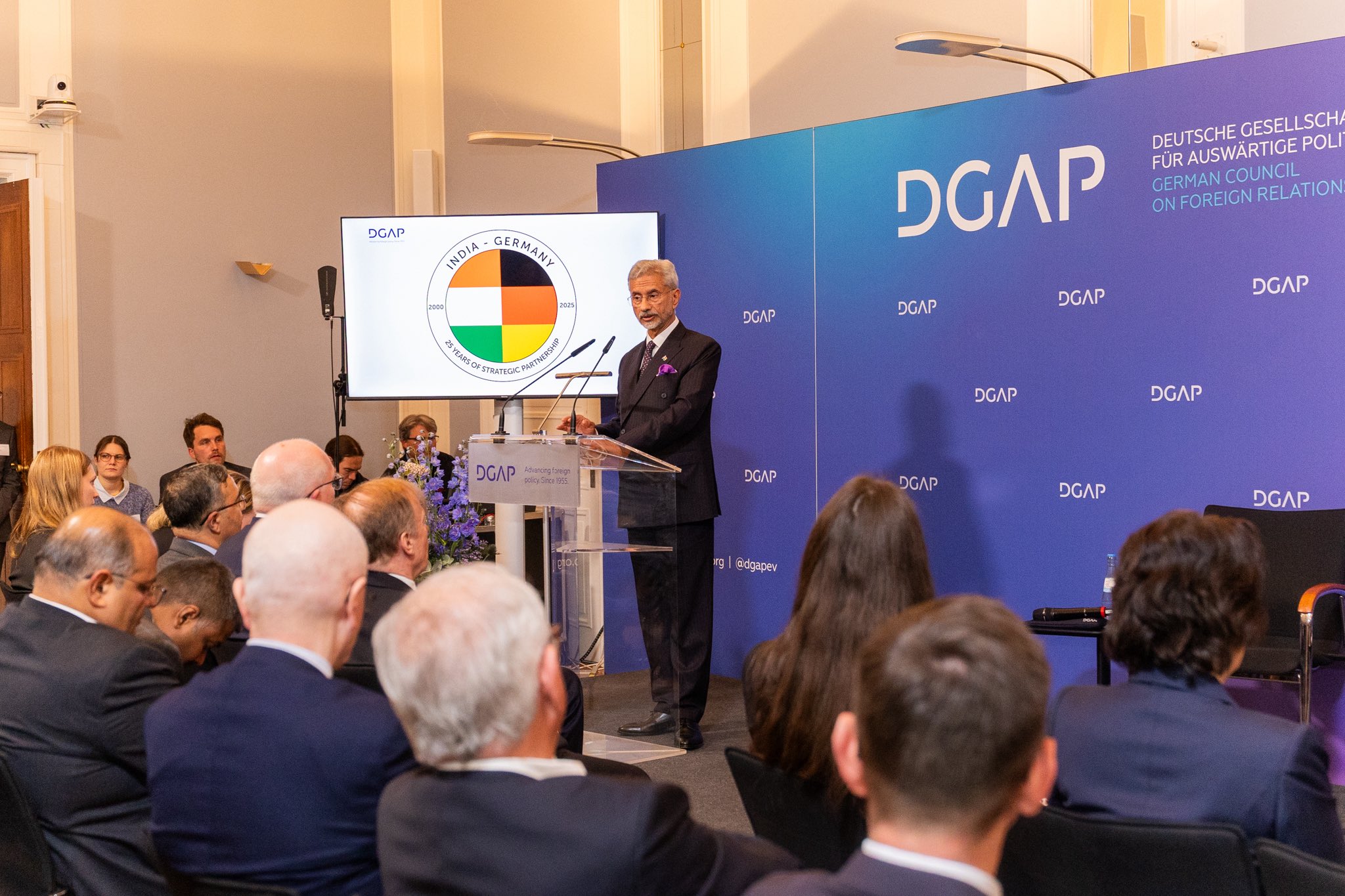
Jaishankar Highlights India’s Right to Self-Defence, Lauds German Support After Terror Attack » Capital News
May 27 – India’s External Affairs Minister Dr. S. Jaishankar has reaffirmed the country’s strong position on counterterrorism in the wake of the recent Pahalgam terror attack and praised Germany for its early and unequivocal support for India’s right to self-defence.
He was speaking at the German Council on Foreign Relations (DGAP) during his official visit to Berlin.
Addressing the incident and India’s subsequent Operation Sindoor, Jaishankar said that there is now near-universal global consensus against terrorism. “When it comes to terrorism, today there is virtually no country which would say they approve of what was done and won’t condemn it,” he noted. “If I say I have the right to defend myself, my people, and secure my country, much of the world will agree with me. Germany does.”
He welcomed Germany’s strong message of support, including swift condemnation of the attack and reaffirmation of India’s right to defend itself. “We are encouraged by the very early condemnation of the terrorist attack, as well as the clear message we got on May 7th and again today from Minister Wadephul that Germany recognises India’s right to defend itself,” Jaishankar said.
Describing the nature of the attack, Jaishankar emphasised that it was not an isolated incident, but part of a larger pattern of violence. “This was a terrorist attack which is part of a pattern that has targeted not only Jammu and Kashmir but other parts of India as well,” he explained. “It was meant to create a fear psychosis, destroy the tourism economy of Kashmir, and sow religious discord.”
He made it clear that India’s response specifically targeted terror infrastructure, not civilians. “What we were responding to was terrorism, and when we responded, there was a lot of international understanding. We targeted terrorist headquarters and terror sites. Our campaign is against terrorism, and in this case, terrorists happen to be located in the country next door because that country, for many years, has used terrorism as a tool.”
Jaishankar’s remarks come as India and Germany mark 25 years of their strategic partnership. He said his visit was an opportunity to reflect on the achievements of the past and to chart a vision for the next phase of the relationship. “To be here early in the tenure of this government, so that we really lose no time in forging a pathway towards taking after 25 years to look at the next 25 years and see where we can take our relationship,” he stated.
He highlighted several pressing global challenges — from the chip war and climate change to poverty and the lasting impact of the COVID-19 pandemic — and expressed confidence that the India-Germany partnership is well-placed to address them. “The global picture is very challenging,” he said, “but the partnership between India and Germany, and India and the European Union, of which Germany is a crucial and invaluable member, has acquired an importance and a salience much more than it has had before.”
Looking ahead, Jaishankar outlined four key areas where India and Germany could enhance cooperation. First, he called for deeper collaboration in defence and security. He acknowledged that while the two countries had once enjoyed close defence ties, there had been some reluctance in recent years. However, he noted a renewed willingness on both sides. “The defence and security of both countries would be very much stronger through our cooperation,” he said, citing joint exercises, port visits by German ships to the Indo-Pacific, and improved export licensing practices as signs of progress.
The second area he highlighted was talent and mobility. He noted that India’s favourable demographic curve positions it to help meet global labour demands, including in Germany. The third area was technology, particularly digital transformation and artificial intelligence. The fourth was sustainability and green growth, where Jaishankar expressed optimism that the two countries could collaborate on climate-friendly technologies and infrastructure.
He concluded by expressing hope for stronger trade ties between India and Germany, adding that a Free Trade Agreement (FTA) between India and the European Union would greatly support that goal. As India and Germany celebrate a quarter-century of strategic partnership, Jaishankar’s visit underscored a mutual commitment to build a future based on shared values, security cooperation, and economic progress.